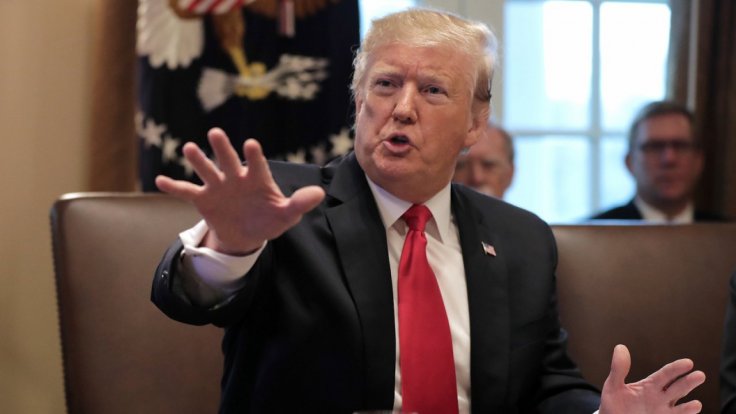On January 27, 2017, US President Donald Trump signed the travel ban order, only a week after assuming office. The original order covered seven Muslim-majority countries: Iraq, Syria, Iran, Libya, Somalia, Sudan, and Yemen. On Tuesday, on the sidelines of the World Economic Forum (WEF) in Davos, Switzerland, the US President confirmed that several other countries would be added to the travel ban list.
Which are the countries to be included in the list?
Though not final, the list of countries under consideration by the Trump administration are Belarus, Myanmar (also known as Burma), Eritrea, Kyrgyzstan, Nigeria, Sudan, and Tanzania, Politico reported. Four among them are African nations, whom Donald Trump described as "shit-hole countries", during his Presidential election campaign. Kyrgyzstan and Burma are Asian nations, while Belarus is European.
US President had confirmed his intention of expanding the list of travel ban nations, in an interview with The Wall Street Journal, but did not disclose the countries being considered.

In a statement, White House spokesman Hogan Gidley said, "The travel ban has been profoundly successful in protecting our country and raising the security baseline around the world. While there are no new announcements at this time, common sense and national security both dictate that if a country wants to fully participate in US immigration programs, they should also comply with all security and counter-terrorism measures — because we do not want to import terrorism or any other national security threat into the United States"
Why were these 7 countries considered for the travel ban?
Though all 7 countries are undergoing conflict of some kind, imposing a travel ban on them is bound to hamper their relations with the US For Nigerians. Trump had once said, if Nigerians come to the US, they will never "go back to their huts" in Africa. Nigeria is a US ally in counter-terror ops and a large Nigerian diaspora live in the US
Though Myanmar is under the world's scanner for the Rohingya genocide, at a time when China is making massive inroads in the south-east Asian nation, whether straining relations with the nation proves to be a good step, will be seen in the future.
The final list will be published next week, mostly on Monday. Anti-immigration features prominently in US politics and is highly popular among the country's conservative voters. During his 2016 election campaign, Trump's anti-immigration stance coupled with Islamophobia gave him rich electoral dividends. Within a week since assuming office, he signed the travel ban order, directed against Muslim-majority countries.








